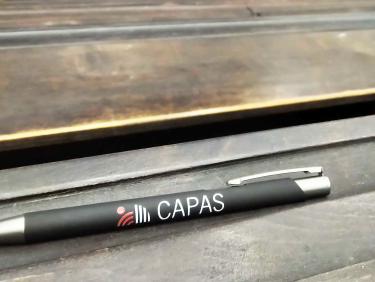Research
How do we conceptualise the end of the world? What of the many worlds that have already ended? As anthropogenic climate change, increasingly polarized politics, and the COVID-19 pandemic anticipate the end of worlds, the idea of the apocalypse is gaining traction in popular and scholarly discourses. Apocalyptic imaginaries saturate artistic practices, media-narratives, political debates, socio-economic discourses and speculative imaginations.
Simultaneously, apocalypses and their imagined aftermaths produce emancipatory and creative potentials that engage the possibility of plural worlds, embodied futurities, and non-linear temporalities.

Research Focus
The first funding period of CAPAS explores ideas of apocalyptic and post-apocalyptic worlds resulting from global transcultural and transversal processes. It will establish a theoretically sharpened terminology, and gather a culturally, disciplinarily differentiated, yet transdisciplinary imaginary of the (post-)apocalyptic. Special attention will be devoted to the main regional research foci at Heidelberg University: South/East Asia and the Americas.
Due to current events, the first groups of fellows will analyse the apocalyptic imaginary that frames the COVID-19 pandemic as well as other imaginaries with a special focus on in Asia, Europe and Latin America, and will take into account the respective “post-apocalyptic” vision or course of action.
Following fellow groups will continue to address apocalyptic and post-apocalyptic imaginaries with a special focus on Europe and (Latin) America and on Europe and Asia respectively.
The last group of fellows of the first funding period focuses on the synthesis of previous research: It analyses (post-)apocalyptic imaginaries in a comparative perspective. The aim is to distinguish them from other scenarios of radical transformation such as change, crises, or catastrophes.
Publications
PubPub
While CAPAS strives to publish work of academic excellence, opening up the dialogue to a broader public is an important goal in revitalizing the way in which academic work is undertaken. PubPub is an open-access, open-science, and open-source space in which fellows can present work in progress and collaborative ideas. Most crucially the CAPAS PubPub showcases major findings of our working groups which connect different fellows over a specific topic they explore over the course of a semester. The results are then secured in the form of working papers and function as a basis of discussion within the centre, both to build connections across working groups and among different fellow cohorts, and as a way of communicating these debates to a broader readership beyond CAPAS.
The site also experiments with different stylistic approaches to scholarly writing (including free-form and blog style works) and transfers academic debate to more vernacular genres such as film reviews coming out of our apocalyptic cinema series, etc.
All Publications
CAPAS is an international and transdisciplinary platform for theoretical and methodological considerations and case studies that deal with the apocalypse as a framework, topic, method, and genre. In our publication outputs we reflect on discussions, processes, and questions that evolve within the centre and we hope to be able to develop and expand these insights by involving a diverse, scientific collective as well as by making our efforts accessible to international researchers and interested parties. The aim being to link and develop thought processes and debates in the emerging field of Apocalyptic and Post-Apocalyptic Studies through three major outputs: our presence on the interactive knowledge transfer web project PubPub, our open-access book series on Apocalyptic and Post-Apocalyptic Studies published with DeGruyter and our open-access, double-blind peer reviewed journal Apocalyptica. Find out more about these publications and learn about the work that comes out of CAPAS, including our articles, chapters, or working group reports.
Links
Associated research projects
The Käte Hamburger Center for Apocalyptic and Post-Apocalyptic Studies also functions as a platform and connecting point for associated research projects and collaborations related to the scientific and practice-oriented work of the center. These can be additional third-party funded projects of CAPAS members or further projects in cooperation with other institutions and researchers, including current or former Fellows.







